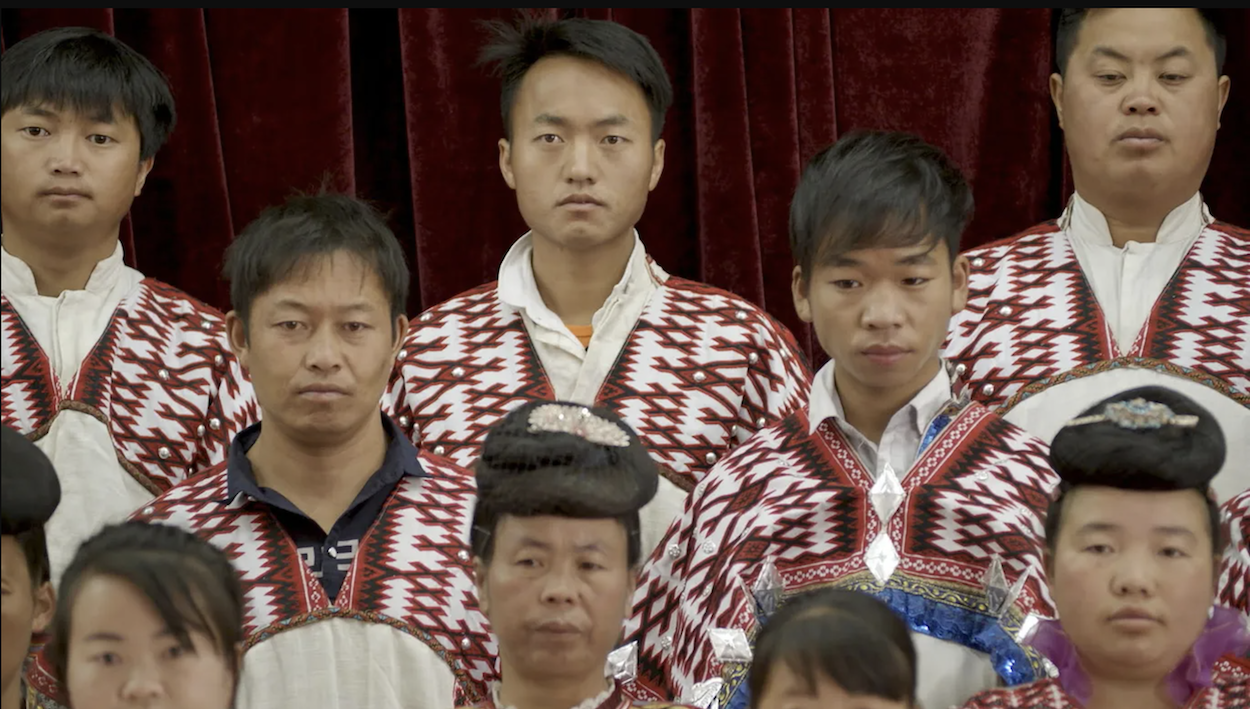by Brian Hioe
語言:
English
Photo Credit: Singing in the Wilderness
This is a No Man is an Island film review written in collaboration with Cinema Escapist, as part of coverage of the International Film Festival Rotterdam. Keep an eye out for more!
THE DOCUMENTARY “Singing in the Wilderness” is a look at a church chorus thrust into China’s national stage after fame from participating in a televised singing competition. What makes this chorus especially interesting is that all its members are Miao—one of China’s officially recognized ethnic minorities. Unlike the Muslim Uyghurs and Hui or Buddhist Tibetans, the Miao receive little international focus, which makes this documentary especially notable.
Although members of the church chorus start of singing hymns primarily for worship, stardom makes them frame their art in more materialistic dimensions. Money made from singing can be a way to afford new homes or to try and find a way out of rural poverty.

Film still
“Singing in the Wilderness” adopts a sympathetic perspective to its subjects, never shying away from the complexities faced by church members as they navigate touring China, learn to sing unfamiliar songs, and even travel to America to perform. Nor does the film shy away from taking an unflinching glimpse at the commodification of Miao culture due to tourism or through of televised programs featuring “ethnic minority” cultures. Director Chen Dongnan manages an admirable sensitivity to such issues, while being attentive to the agency of her subjects.
If “Singing in the Wilderness” does have a weak point, it is that it perhaps does not manage a close enough glimpse at its subjects. Though the documentary focuses to a larger extent on a newly married couple, the husband of whom hopes to become a preacher, the shifts in the lives of this couple come without warning. One has little sense of the inner turmoil of the husband, for example, before captions inform the viewer that he attempted to kill himself. One also has little sense of the impending split facing the couple before it happens.
There also is not any clear ending point for the documentary, with the film taking its leave of its subjects after a certain point. This, too, is a bit abrupt. Perhaps one should not blame a documentary for failing to look deeply enough into the lives of its subjects, but the film does its best, critically capturing an engrossing subject and doing so with a humanistic lens.



